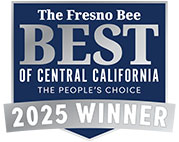- Communication Competency- Written and Oral Communication
- Students will demonstrate effective communication skills in reading, writing, listening, speaking and communicating in different formats.
- Students will develop and present cogent, coherent and substantially error-free writing for communication to general and specialized audiences.
- Students will demonstrate effective interactive communication through discussion, i.e., by listening actively and responding constructively and through structured oral presentations to general and specialized audiences.
- Students will negotiate with peers an action plan for a practical task and communicate the results of the negotiation either orally or in writing.
- Analytical Inquiry- Critical Thinking and Problem-Solving Skills
- Students will demonstrate the ability to collect information in response to a question or problem; analyze and draw valid conclusions from statements, images, data, and other forms of evidence; and assess the implications and consequences of conclusions.
- Students will identify and frame a problem or question in selected areas of study and distinguish among elements of ideas, concepts, theories or practical approaches to the problem or question.
- Quantitative Reasoning- Mathematical and Scientific Reasoning
- Students will be able to: analyze, estimate, use, and evaluate quantitative information using words, data, graphs, and symbols; and apply the scientific method to questions regarding observable natural, physical and social phenomena.
- Students will present accurate interpretations of quantitative information on political, economic, health-related or technological topics and explain how both calculations and symbolic operations are used in those offerings.
- Students will create and explain graphs or other visual depictions of trends, relationships or changes in status.
- Information Competency- Technology and Media Literacy
- Students will be able to locate, evaluate, synthesize and use multiple forms of information, data, media, and technology.
- Students will identify, categorize, evaluate and cite multiple information resources so as to create projects, papers or performances in either a specialized field of study or with respect to a general theme within the arts and sciences.
- Ethical Reasoning
- Students will describe the ethical issues present in prominent problems in politics, economics, health care, technology or the arts and show how ethical principles or frameworks help to inform decision making with respect to such problems.
- Ability to Engage Diverse Perspectives
- Students will be able to demonstrate knowledge of significant social, cultural, environmental and aesthetic perspectives.
- Students will describe how knowledge from different cultural perspectives might affect interpretations of prominent problems in politics, society, the arts and global relations.
- Students will describe, explain and evaluate the sources of his/her own perspective on selected issues in culture, society, politics, the arts or global relations and compare that perspective with other views.
- Personal, Academic, and Career Development
- Students will assess their own knowledge, skills, and abilities, set personal, educational, and career goals, work independently and in group settings, and identify lifestyle choices that promote self-reliance, financial literacy, and physical, mental and social health.
